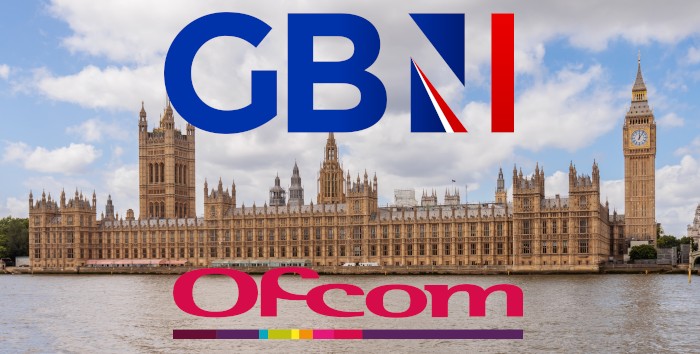
The broadcaster GB News (https://en.wikipedia.org/wiki/GB_News) has since it arrived on the scene on Sunday 13th June 2021 – which in Portugal is celebrated as the Feast of St. Anthony – that is Saint Anthony of Padua (15th August 1195 – 13th June 1231) and not Saint Anthony Blair of Sedgefield & Davos – been described as a “disruptor”.
As a broadcaster of news and current affairs, GB News has frequently been the subject of news – as a result of a string of complaints by offended members of the Woke community AKA “VEOPs” (Very Easily Offended Persons).
The recent controversy surrounding sitting and former MPs being employed as presenters has brought forth the expected articles from such as the Guardian: https://www.theguardian.com/media/2024/feb/24/gb-news-is-being-allowed-to-break-impartiality-rules-say-senior-tv-figures
I would like to draw you attention Dear Reader to a response from Chris Banatvala, a former Ofcom director of standards and ex-member of its content board: “There are due impartiality rules that are set both in legislation and broadcasting code and it is arguable that Ofcom is not regulating GB News to the same standard as it is other providers, most obviously Sky, ITV and the BBC”.
Ofcom stated: “Our rules apply equally to all broadcasters, and where we have cause to investigate, we publish fully reasoned decisions based on the evidence. At all times, we take into account the fundamental importance of freedom of expression and media plurality.”
The statements from Mr Banatvala and Ofcom refer to a broadcasting system that has evolved over a century.
The British Broadcasting Corporation (BBC) was originally established in 1922 as the British Broadcasting Company and acquired it’s current name on New Year’s Day 1927.
The media world was very different then. Radio or “the wireless” as it used to be known was new technology. Up to the Great War the news was provided by newspapers. These were not impartial institutions! They are not today and they were not then!
In 1922 the British government and Parliament recognised that the new radio broadcaster of news would be a monopoly and therefore it was felt essential that the service could not be partial but had to be impartial. They were correct in this!
However, a century later the situation is very very different!
Given the multiplicity of broadcasters there should be no problem about allowing broadcasters the same degree of editorial bias as with the print media.
There is of course a problem!
The political establishment in the UK value the general consensus that has been created and they do not want to see channels such as GB News.
The broadcast environment in the UK is a state sponsored consensus where a particular editorial line is pursued.
THIS HAS TO CHANGE!
Many critics of the Brussels Brainwashing Commissariat would like to see the organisation de-funded and forced to survive as a paid for streaming service. Others would like to see it abolished completely. I disagree strongly. My suggestions are to be found here: https://british-gazette.com/abolishing-the-tv-licence/
I would like to see the BBC continue because the UK is a minority within the Anglosphere and were it left to the free market the USA would dominate. This would damage the cultural life of the UK.
Now many will opine that left to it’s own woke and PC devices the BBC could produce a range of content that would see examples of famous historical characters such as King Henry VIII being played by black actors.
This is entirely possible. I would not seek to stop this. This because the essential practice in any functioning democracy is to tolerate views and opinions one does not like and not seek to shut down content that is not to your liking!
Many of course will argue that since the BBC is funded by a tax, market forces cannot operate and thus producers can produce all manner of objectionable content and a resulting collapse of viewing figures will have no effect on the finances! This is why I would wish to have an overseeing board of twelve governors and that these twelve governors be elected by the UK’s council tax payers. They would in all probability be like the elected Police and Crime Commissioners – members of political parties. This is why I propose that the twelve be elected by First Past the Post (US; 2 Party System) in twelve UK wide single member constituencies the delineators being twelve council tax bands. This would ensure a mix of politicians on the oversight board.
This still leaves the issue of regulation:
Ofcom is required under the Communications Act 2003 (as amended) (“the Act”) and the Broadcasting Act 1996 (as amended) (“the 1996 Act”) to draw up a code for television and radio, covering standards in programmes, sponsorship, product placement in television programmes, fairness and privacy. This Code is to be known as the Ofcom Broadcasting Code (“the Code”):
https://www.ofcom.org.uk/tv-radio-and-on-demand/broadcast-codes/broadcast-code
I suggest that the existing ten sections of the Broadcasting Code should be pruned down to four:
Section 1: Protecting the under 18s.
Section 2: Harm and offence.
Section 3: Crime, disorder hatred and abuse.
Section 8: Privacy.
This pruning would make the regulatory environment fit for the 21st Century.
